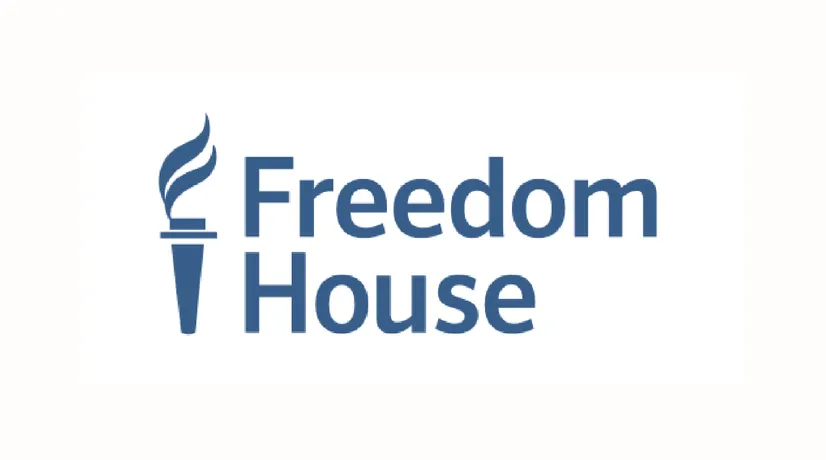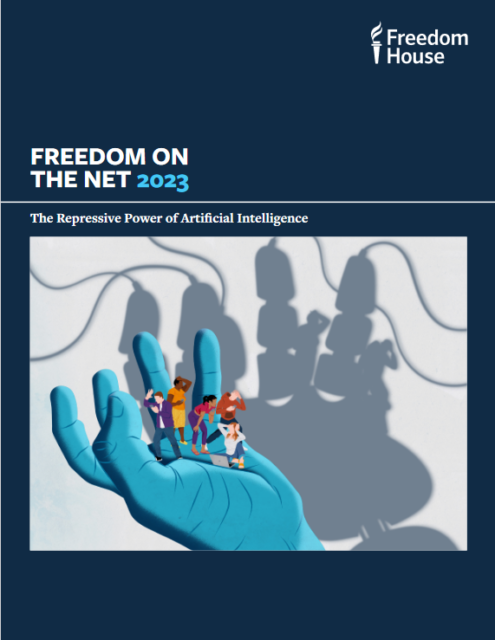Freedom on the Net 2023: The Repressive Power of Artificial Intelligence
04 October 2023

Key Findings
Digital repression intensified in Iran, home to this year’s worst decline, as authorities shut down internet service, blocked WhatsApp and Instagram, and increased surveillance in a bid to quell antigovernment protests. Myanmar came close to dislodging China as the world’s worst environment for internet freedom, a title the latter country retained for the ninth consecutive year.
In a record 55 of the 70 countries covered by Freedom on the Net, people faced legal repercussions for expressing themselves online, while people were physically assaulted or killed for their online commentary in 41 countries. The most egregious cases occurred in Myanmar and Iran, whose authoritarian regimes carried out death sentences against people convicted of online expression-related crimes.
Myanmar was the world’s second most repressive environment for internet freedom this year. Under military rule since a 2021 coup, the country’s internet users continued to express support for the democratic resistance movement or grief for the victims of the junta’s violence, all at great personal risk to themselves. The army and its informants used Telegram groups to share information on such dissidents, allowing the authorities to identify, detain, and in some cases forcibly disappear them. In the most egregious case from the coverage period, the military executed prominent activist Kyaw Min Yu, better known as Ko Jimmy, in July 2022, after arresting him for prodemocracy social media posts. Officials also forced the sale of the last internet service provider in Myanmar that had a degree of independence to a state-linked company in September 2022, clearing the way for implementation of the regime’s censorship without resistance from the private sector.
Announcements
28 February 2025
Asian NGO Network on National Human Rights Institutions , CSO Working Group on Independent National Human Rights Institution (Burma/Myanmar)
Open letter: Removal of the membership of the dis-accredited Myanmar National Human Rights Commission from the Southeast Asia National Human Rights Institution Forum

Progressive Voice is a participatory rights-based policy research and advocacy organization rooted in civil society, that maintains strong networks and relationships with grassroots organizations and community-based organizations throughout Myanmar. It acts as a bridge to the international community and international policymakers by amplifying voices from the ground, and advocating for a rights-based policy narrative.
